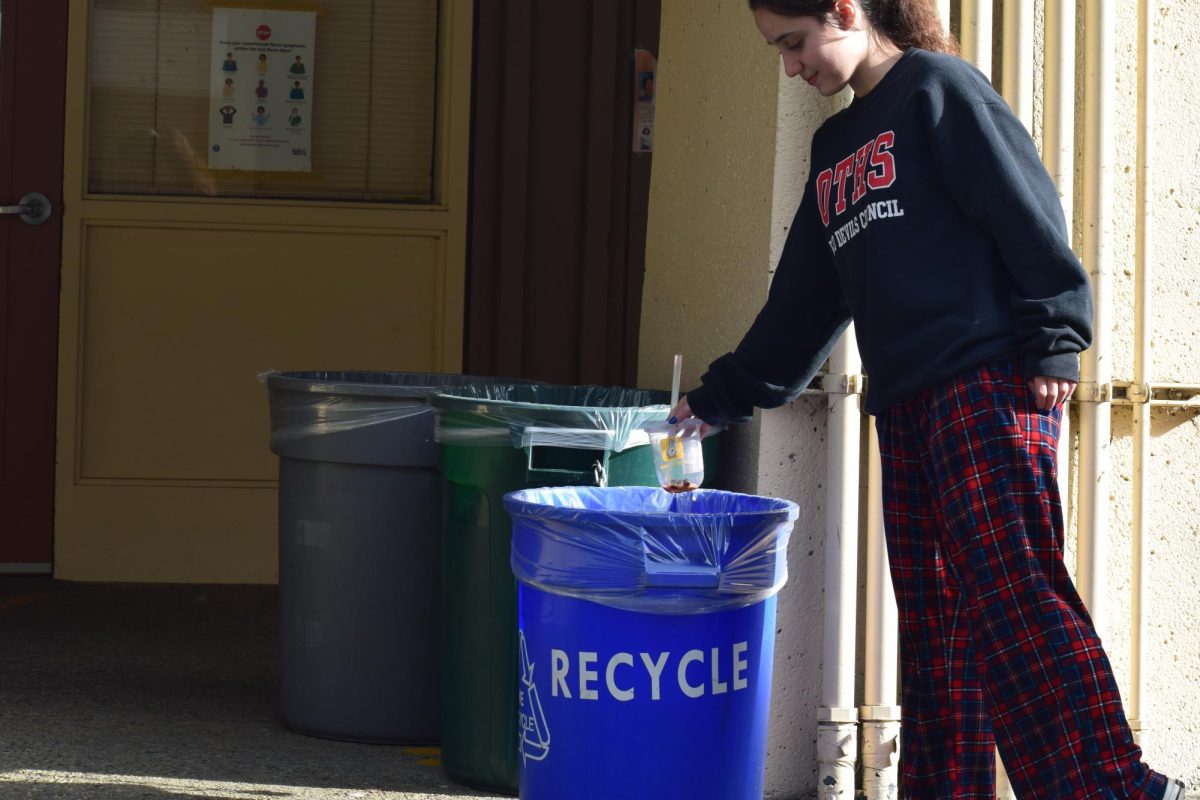When I was hiking in Yosemite I was super disappointed to see litter like food wrappers along the hiking trails,” junior Clara Hoffman, a member of the EcoCycle club, talks about how the presence of litter at her favorite national park affected her trip.
“Litter is a common thing to find wherever I hike and it’s really sad to see in outdoor spaces,” Hoffman said.
Palo Alto High School’s EcoCycle Club offers a community where students are able to participate in promoting zero-waste practices. By organizing fundraisers, activities, and outreach to other organizations, the club hopes to make a positive effect on the city’s environment.
Litter has become a massive threat to the health of the environment.
Keep America Beautiful conducted a survey in 2020 and found that nearly 50 billion pieces of litter are along U.S. highways and waterways.
California, one of the biggest states, has large sums of litter pollution.
The Southern California Coastal Water Research Project found that 77% of Southern California’s coastal stream kilometers contained trash, with an estimated stock of 7 million pieces of trash.
The Ecocycle Club,founded in 2023, holds discussions regarding issues in Palo Alto’s environmental plan and appropriate solutions.
For instance, upon realizing the large amount of paper wastage by teachers, several meetings were held to implement a recycling and reusing system. The members watered down the paper, transforming it to
sludge, which was then molded into thin rectangular shapes before drying.
Riya Kini and Sabela Chelba, co-founders of the Ecocycle Club, said their reasons for starting the club are to target problems in waste management and environmental risks at Paly before having a larger impact in Palo Alto.
“Our focus isn’t necessarily on Paly specifically, but rather Palo Alto as a whole. We intend to use the Paly community as a jumping off point to make connections through Palo Alto,” Chelba said.
Chelba and Kini have ambitious and impactful goals for the future so they are able to not only limit litter and advocate for zero-waste solutions but provide resources for people.
“We plan on doing a garage-sale type event where we sell or give collected items from the community, the main intent being to distribute them to people who have uses for them, or to sell them and raise money for charity,” Chelba said.
According to the National Institute of Health, zero waste lifestyles have gained popularity throughout the country, especially as the rise of social media influenced and promoted these practices as well as connect
ing people supporting the movement. Palo Alto has started implementing zero waste practices in the community by hosting scheduled events such as compost workshops, hazardous waste stations, and much more.
The city founded the Sustainability and Climate Action Plan in 2022 which guides Palo Alto’s sustainability and emissions reduction strategy. The plan has a goal of increasing the diversion rate from 84% to 95% by 2030.
Zero waste practices have become prevalent in Palo Alto’s youth, such as with Hoffman, who have tweaked her lifestyle to adopt environmental conscious decisions.
“I have definitely started implementing zero waste practices in my lifestyles,” Hoffman said. “I use cloth produce bags, beeswax wraps, and shopping at the farmers market more frequently. These small changes have not been difficult but have bettered my plastic usage and waste.”
Kini, a passionate advocate for the environment, shares what she hopes to add to the Paly community.
“We are not just trying to start a club but rather foster a community that supports students’ interest and passion for the environmental state of Palo Alto,” Kini says.
